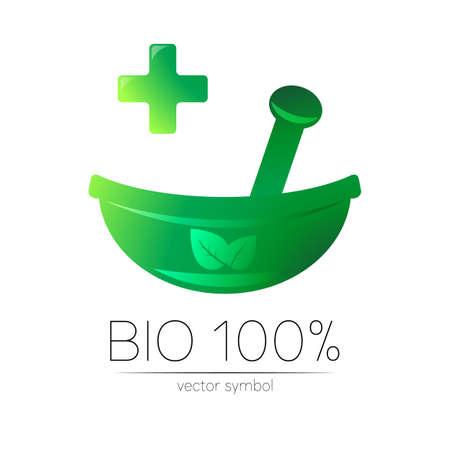Introduction to Ethics in UK Aesthetic Medicine
Aesthetic medicine in the UK is a dynamic and rapidly evolving field, shaped not only by technological advancements but also by a deep-rooted commitment to ethical practice. As someone immersed in this world, I’ve witnessed firsthand how the British approach to aesthetics intertwines with our cultural values—such as respect for individual autonomy, transparency, and patient dignity. In recent years, the industry has faced increasing scrutiny from both the public and regulators, prompting practitioners to place even greater emphasis on ethical considerations. The General Medical Council (GMC), the Joint Council for Cosmetic Practitioners (JCCP), and other regulatory bodies have established robust frameworks that set clear expectations for patient safety, informed consent, and professional conduct. Moreover, patients today are more informed and discerning than ever before; their expectations have shifted towards personalised, patient-centred care that respects their unique circumstances and wellbeing. Navigating these changes requires practitioners to balance innovation with integrity, ensuring that every treatment aligns with best ethical practices while reflecting the values of British society.
2. Patient-Centred Care: Values and Communication
At the heart of ethical practice in UK aesthetic medicine lies an unwavering commitment to patient-centred care. This approach, rooted in British values of respect, dignity, and integrity, ensures that each individual feels genuinely heard and valued throughout their journey. In the UK context, building trust between practitioner and patient is paramount; it forms the cornerstone of a transparent therapeutic relationship.
Core Principles of Patient-Centred Care
| Principle | Description | UK Cultural Application |
|---|---|---|
| Trust | Cultivating a reliable, honest rapport with patients | Practitioners maintain professionalism and confidentiality, which aligns with British expectations for discretion and reliability in healthcare settings. |
| Respecting Autonomy | Empowering patients to make informed choices about their treatments | Clinicians provide unbiased information and support decisions without coercion—echoing the UK’s strong emphasis on individual rights and independence. |
| Informed Consent | Ensuring patients understand risks, benefits, and alternatives before proceeding | The process is thorough yet sensitive, acknowledging the British preference for clarity without sensationalism or undue pressure. |
| Open Communication | Maintaining transparent, empathetic dialogue tailored to the patient’s needs | Practitioners use clear, jargon-free language and actively listen—mirroring UK cultural norms of politeness and attentiveness. |
Communication: The Foundation of Trust
An authentic patient-practitioner relationship thrives on honest dialogue. In the UK, where understatement and politeness are deeply ingrained, practitioners are encouraged to offer guidance with both warmth and clarity. This includes inviting questions, addressing anxieties with empathy, and providing balanced information—avoiding both overpromising results or downplaying risks. Respectful listening is equally vital; acknowledging a patient’s emotions, preferences, and concerns reinforces their autonomy while nurturing mutual respect.
The British Approach to Difficult Conversations
Tackling sensitive topics such as expected outcomes or potential complications requires a nuanced touch. British practitioners often adopt a measured tone—neither alarmist nor dismissive—ensuring patients feel supported rather than overwhelmed. This fosters an environment where patients are empowered to share honestly, making truly informed decisions about their care.
Summary Table: Communication Best Practices in the UK Context
| Best Practice | Cultural Relevance (UK) |
|---|---|
| Active Listening | Demonstrates genuine interest; encourages open sharing in line with British conversational etiquette. |
| Avoiding Jargon | Makes information accessible for all backgrounds; aligns with NHS guidelines for plain English communication. |
| Sensitive Disclosure | Presents facts thoughtfully; respects the British value of understatement when discussing risks or side effects. |
| Encouraging Questions | Invites participation; reassures patients accustomed to collaborative decision-making in UK healthcare. |
| Follow-Up Support | Reflects holistic care expectations; reassures patients that they remain cared for beyond treatment itself. |
This dedication to patient-centred communication not only upholds ethical standards but also fosters enduring trust—a hallmark of excellence in UK aesthetic medicine.

3. Transparency and Honesty in Consultation
In the UK, transparency and honesty during aesthetic medicine consultations are not only ethical imperatives but also essential for building trust between practitioners and patients. The consultation process should always start with a genuine dialogue, where the patients concerns, goals, and motivations are thoroughly explored. It is crucial to provide clear, unbiased information about each proposed treatment, including potential risks, realistic benefits, likely outcomes, and any alternatives available. This clarity helps patients make informed decisions based on facts rather than sales pitches or marketing hype.
Best practices include using everyday language rather than medical jargon, ensuring that written materials such as consent forms and aftercare instructions are equally accessible. Practitioners must resist the temptation to oversell results or guarantee transformations that simply cannot be delivered. Instead, managing expectations with integrity means discussing both the possibilities and limitations of aesthetic procedures — for example, explaining that while certain treatments can offer significant improvements, they may not achieve perfection or completely reverse natural ageing processes.
Honest consultations also involve acknowledging when a procedure may not be suitable for a particular patient or when psychological factors might influence satisfaction with the outcome. Referring patients to other professionals or suggesting a cooling-off period before making decisions demonstrates a patient-centred approach rooted in care rather than commercial interests. In sum, fostering openness at every stage reflects both the ethical standards expected in UK practice and the values of respect and dignity that underpin effective patient care.
4. Privacy and Confidentiality in the UK Setting
Upholding privacy and confidentiality is a cornerstone of ethical practice in UK aesthetic medicine, woven deeply into both legal frameworks and professional codes of conduct. The General Data Protection Regulation (GDPR), as implemented through the Data Protection Act 2018, sets a strict standard for how patient information must be collected, stored, and shared. This ensures that every individuals dignity is respected while fostering trust between practitioners and patients.
The Legal Landscape: GDPR and Patient Data
UK practitioners are legally obliged to handle all personal data with utmost care. GDPR requires clear patient consent for data collection and use, transparency regarding how information is processed, and robust safeguards against unauthorised access or breaches. These measures are not merely bureaucratic; they form the backbone of patient-centred care by prioritising respect for each patients autonomy and privacy preferences.
Practical Applications in Aesthetic Clinics
| Principle | Action in Practice |
|---|---|
| Confidentiality | Consultations conducted in private rooms; staff trained on discreet communication |
| Consent | Written consent forms explaining data usage, tailored to each procedure |
| Data Security | Encrypted digital records; secure storage of physical files; limited access for authorised personnel only |
Ethical Obligations of Practitioners
The ethical responsibility goes beyond compliance. Respecting privacy means treating every individual with dignity—never discussing patient details outside professional settings, avoiding unnecessary sharing of identifiable information even within clinical teams, and always involving patients in decisions about their data. For me, this commitment transforms an aesthetic clinic into a safe space where clients can share their concerns openly, knowing their trust will never be compromised.
In summary, maintaining privacy and confidentiality is more than just following rules; it is a daily practice that reinforces patient trust and upholds the values at the heart of UK aesthetic medicine.
5. Practitioner Competence and Continuing Professional Development
In the ever-evolving landscape of UK aesthetic medicine, practitioner competence stands as a core ethical pillar, underpinning patient trust and ensuring optimal outcomes. As I have observed throughout my experience in clinics across London and beyond, the commitment to excellence is not a mere formality—it is an ongoing journey shaped by rigorous standards set by regulatory bodies such as the General Medical Council (GMC), Nursing and Midwifery Council (NMC), and professional associations like the British College of Aesthetic Medicine (BCAM).
The Ethical Imperative for Ongoing Training
Ethical practice in aesthetic medicine demands more than initial qualification; it requires practitioners to actively seek further education and stay abreast of the latest clinical techniques, safety protocols, and evidence-based treatments. The UKs regulatory framework compels professionals to participate in regular continuing professional development (CPD) activities, ensuring skills remain sharp and knowledge remains current. This commitment protects patients from outdated or unsafe practices—something I’ve personally valued when selecting my own practitioners.
Credentialing and Accreditation
It is essential that aesthetic practitioners maintain up-to-date credentials and are transparent about their qualifications. Robust credentialing processes, such as those enforced by Save Face or JCCP registers, offer patients peace of mind while reinforcing the practitioner’s ethical responsibility to operate within their scope of expertise. From my perspective, knowing a clinician is properly accredited transforms anxiety into confidence during every consultation.
Fostering a Culture of Reflection and Growth
High-quality patient-centred care thrives where self-reflection is encouraged. Many UK clinics now embrace regular peer reviews, mentorship opportunities, and ethical case discussions—a culture shift that elevates standards across the sector. In my own journey through aesthetic treatments, I’ve come to deeply appreciate practitioners who demonstrate humility and a willingness to learn, viewing CPD not as a checkbox but as an expression of genuine care for their patients’ wellbeing.
Ultimately, maintaining practitioner competence through continuous professional development is not just about compliance; it is an ethical promise—one that safeguards patient safety, fosters innovation, and ensures the field of UK aesthetic medicine continues to flourish with integrity.
6. Addressing Vulnerability and Social Pressures
Within the landscape of UK aesthetic medicine, practitioners are increasingly called upon to reflect deeply on the unique ethical challenges that arise when working with vulnerable patients who may be unduly influenced by societal pressures and evolving ideals of body image. British culture, much like elsewhere, is shaped by social media, celebrity trends, and a persistent narrative around beauty standards that can leave individuals feeling inadequate or compelled to seek cosmetic interventions for acceptance or validation. As someone immersed in this world, I have witnessed firsthand how these external forces can blur the line between personal choice and societal coercion.
The Influence of British Societal Norms
Britain’s rich tapestry of traditions and its ever-changing multicultural environment influence public perceptions of beauty. From the discreet elegance often favoured in London to regional differences across the UK, expectations can subtly shift, but the underlying pressure remains. The increasing visibility of aesthetic treatments—celebrated or scrutinised in tabloids and online forums—only adds complexity. Practitioners must stay attuned not only to individual patient needs but also to the wider cultural narratives that might drive requests for treatment.
Recognising Patient Vulnerability
A core ethical principle is identifying vulnerability: patients may be experiencing low self-esteem, mental health challenges such as body dysmorphic disorder, or external pressure from peers or partners. It is essential that practitioners approach each consultation with empathy and a discerning eye, gently exploring motivations while remaining vigilant against signs that suggest a procedure might not be in a patient’s best interests. In my experience, some of the most meaningful moments come from guiding patients towards self-acceptance rather than simply acquiescing to their initial requests.
Prioritising Well-being Over Commercial Gain
Ethical practice in UK aesthetic medicine means placing patient welfare above profit. This includes resisting upselling unnecessary procedures and being transparent about realistic outcomes. It also involves supporting patients through education—helping them understand that beauty ideals are fluid and culturally constructed, rather than absolute standards to which they must conform. By championing these values, practitioners reinforce trust and foster a culture where well-being takes precedence over commercial success.
Ultimately, addressing vulnerability and social pressures is not just about safeguarding individuals; it is about nurturing a more compassionate approach within the industry itself. By upholding these ethical standards, UK practitioners can serve as advocates for both beauty and holistic well-being—ensuring that every patient feels seen, respected, and genuinely cared for.
7. Conclusion: Towards a Gold Standard of Ethical Care
As we reflect on the ethical principles guiding UK aesthetic medicine, it becomes clear that patient-centred care is more than a guiding concept—it is the very foundation upon which trust, safety, and excellence are built. Throughout this article, we have explored how respect for patient autonomy, transparency in communication, and holistic consideration of each individual’s needs serve as the cornerstones of best practice in the field. These commitments not only uphold professional integrity but also foster authentic relationships between practitioners and patients, ensuring every treatment journey is grounded in informed consent and shared decision-making.
Looking ahead, the vision for UK aesthetic medicine must continue to evolve towards a gold standard of ethical care—one that not only meets regulatory expectations but goes further to create an environment where respect and dignity are non-negotiable. This means embracing ongoing education, reflective practice, and open dialogue with patients about risks, benefits, and alternatives. By prioritising well-being over profit and valuing transparency above convenience, practitioners can build lasting trust within their communities.
The future of UK aesthetic medicine lies in a harmonious blend of clinical expertise and empathetic engagement. It is about seeing beyond procedures to understand the person behind each consultation—acknowledging their hopes, fears, and unique motivations. As professionals dedicated to enhancing both appearance and self-confidence, our ethical obligations demand nothing less than an unwavering commitment to honesty, compassion, and patient empowerment at every stage of care.
In summary, by steadfastly upholding these ethical principles and striving for continuous improvement, UK aesthetic practitioners can set a benchmark for quality that others aspire to emulate—a true gold standard where patient-centred care remains at the heart of every decision.


